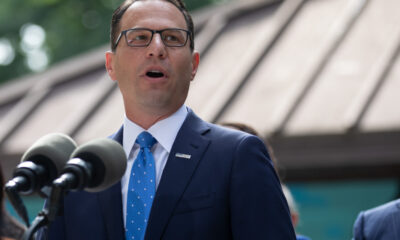Executive
Energy Truths Will Set Us Free
Climate change panic and typical associated policy presents four problems. Society should emphasize abundance of energy.

Climate science has become too political. Climate policies have become insufficiently scientific. And financial products ostensibly designed to reverse climate change now broadly exacerbate it.
Denying the trade-off between abundant energy and climate “remedy”
It is against this failing backdrop that a new initiative – the National Center for Energy Analytics – has been launched. NCEA scholars are devoted to data-driven analyses of policies, plans, and technologies that affect the supply and use of energy essential for human flourishing. I recently participated in their first Energy Future Forum in Washington, DC, during which I tried to make four critical points (check the embedded video).
The first was that the greatest threat to human progress does not emanate from climate deniers; it comes from trade-off deniers. The idea that public policies, corporations, and individuals should unite around an austerity agenda that deprives markets of the energy sources they need to function risks human calamities that dwarf those from rising temperatures alone. This is why Pope Francis wrote in his climate encyclical Laudato Si: “We are not faced with separate crises – one environmental, another economic – but rather one complex crisis with multiple challenges. Solutions demand an integrated approach. We must combat poverty, restore dignity to the excluded and protect nature all at the same time.”
It follows that every nation-state should choose an energy-abundant future – that is, energy plans that are as clean, affordable, reliable and consistent with national security needs as possible. Energy-austerity plans offer none of these. To properly care for the Earth and its soon-to-be 10 billion inhabitants, we must choose energy abundance.
The climate science is far from settled
Second, too much that is uncertain about our climate future is being misrepresented as certain for political purposes. It is undeniable that human activities – including the consumption of fossil fuels – are affecting our air, land, and water in ways that merit our attention. But it is also clear that non-human influences are even more of a determinant for global temperatures. This is why the IPCC – the world’s most authoritative body opining on climate science and trends – casts all of its climate findings in probabilistic terms. Hence we learn from the IPCC that it is highly likely that global temperatures have already risen +1.1° C since the nineteenth century, and that they are likely to rise another +1.3° C in the next 80 years. While there would be many important economic, social, and environmental implications of this continuing warming trend, mass human extinction is not among them.
Changing global weather patterns create both winners and losers. Today it is only the potential losers that dominate global headlines and policy debates. It follows that the punitive terms of the Paris Accord – which fatefully pledges to limit global temperature rise to less than +1.5° C by 2050, no matter the cost to human wellbeing – has outlived its usefulness. Policymakers should abandon the precepts of Paris, which are both unreasonable and fundamentally ill-conceived.
Climate change investment results in unaffordable loss
Third, so-called climate-aligned financial products are precisely the opposite of what mindful asset owners and climate activists want and need. Climate-aligned funds restrict their investment universe to firms that have verifiably pledged to be carbon neutral by 2050. As it happens, fewer than half of the firms in the S&P 500 now fit this description. The unavoidable consequence of such filtering is that investors end up with massively inefficient portfolios and no voting rights within those firms that most need to change for the globe to reach net zero.
Here’s another energy hard truth: we may be able to divest ourselves to a green portfolio, but we will never be able to divest ourselves to a green world. Decarbonization and reconfigured energy grids require massive investment, not divestment. No doubt this is why Bill Gates once said that trillions of dollars of ESG investments have failed to remove one ton of carbon from the air.
Energy crippling funds violate fiduciary rules
Finally, fiduciary rules almost certainly require that asset managers now close down all their ESG funds and redirect these client assets toward broader market alternatives and verified-impact investment strategies. It turns out that it is possible to make market-related returns while advancing a range of important social and environmental objectives; it is simply not possible to do so through divestment of public equities, as ESG strategies pretend. Direct investment in certain categories of green bonds, low-income housing funds, and sustainable private credit strategies can produce verifiable social and environmental benefits while generating returns consistent with the underlying risks of their asset class, something almost no ESG fund can now claim.
NCEA will help scientists address uncertainties and exaggerations in their predictions on global warming and its consequences. We pledge simultaneously to hold politicians to account, making sure they accurately calculate the real costs and benefits of their proposed policies. Finally, we will help ensure that finance plays its proper role in society as a steward of asset owners’ single-and-double-bottom-line objectives, consistent with fiduciary rules. For far too long, ESG products promised their loyalists that they would do well and do good, while they in fact did very little of either. Now, following years of false promises and obfuscation, the truth will set us free.
This article was originally published by RealClearEnergy and made available via RealClearWire.
Terrence R. Keeley is CEO of the Impact Evaluation Lab and author of Sustainable.
-

 Accountability3 days ago
Accountability3 days agoWaste of the Day: Principal Bought Lobster with School Funds
-

 Executive1 day ago
Executive1 day agoHow Relaxed COVID-Era Rules Fueled Minnesota’s Biggest Scam
-

 Civilization8 hours ago
Civilization8 hours agoWhy Europe Shouldn’t Be Upset at Trump’s Venezuelan Actions
-

 Constitution2 days ago
Constitution2 days agoTrump, Canada, and the Constitutional Problem Beneath the Bridge
-

 Civilization1 day ago
Civilization1 day agoThe End of Purple States and Competitive Districts
-

 Christianity Today8 hours ago
Christianity Today8 hours agoSurprising Revival: Gen Z Men & Highly Educated Lead Return to Religion
-

 Civilization5 days ago
Civilization5 days agoThe devil is in the details
-

 Executive20 hours ago
Executive20 hours agoWaste of the Day: Can You Hear Me Now?














